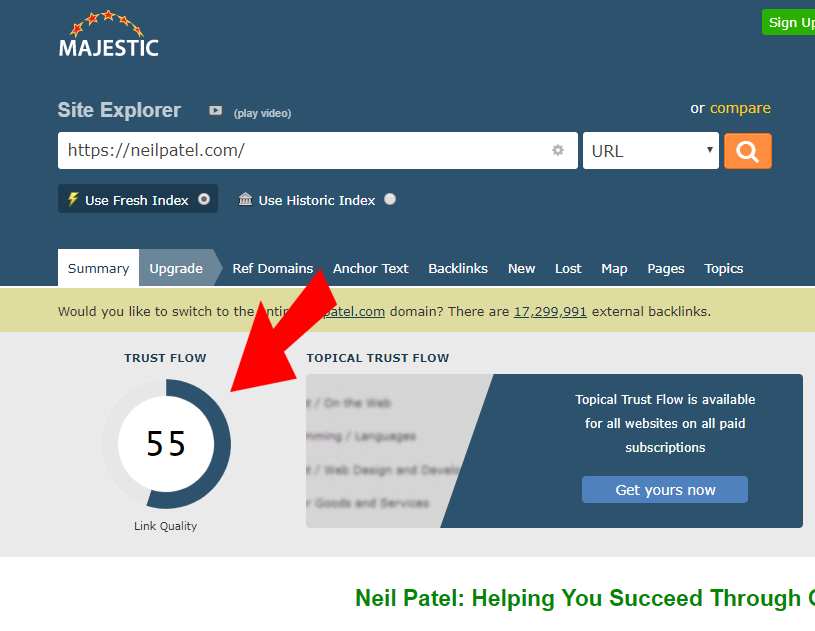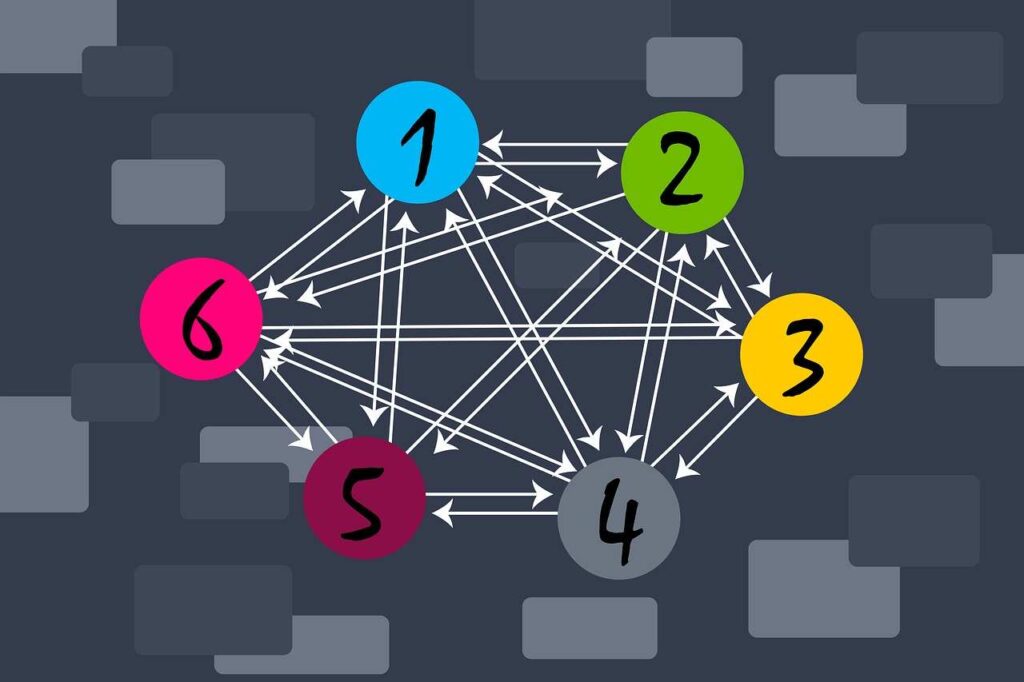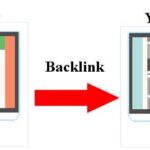The most important factor in SEO is also the hardest. Getting links, known as a backlink to your pages or your site from other web sites on the internet. The effort to get more quality backlinks to your content is known as link building and is the subject of this post.
Let’s face it- SEO is really about internet marketing and more specific traffic. Just as location is important for retail traffic, backlinks are what bring traffic to your web site.
You can have a mediocre product or service, and still have a good chance of success with great marketing. However, the same can’t be said that if you have a great product or service and only mediocre marketing. Chances are low that without good marketing, you will have much success. Marketing is what drives people to your business. A good product or service only keeps them coming back. Therefore, without good marketing, you do not have a business.
You can think about all the content of your website as being your store. However, even the best content is worthless if nobody knows about it. If your content is your store, then your marketing are your backlinks.
On-Page SEO vs Off-page SEO
So far, we have talked about both the hidden elements of SEO and visible elements of SEO, which can be collectively called on-page SEO. On-page SEO are all the things that you can do to your website and its pages to allow search engines to find your content. All these on-page efforts are within your control. On–page SEO is like creating a great product.
However, off-page SEO is about the marketing part, and that is all about getting backlinks to your website and specific pages. Backlinks are the links to your content from other websites and pages, and are for the most part, outside of your direct control. That is why getting backlinks, while being the most important part of SEO, is also the hardest part.
From the perspective of the modern search engine, anyone can say they have a great product (on-page) but when others (off-page) say it, especially someone whose opinion is well respected (high page authority or domain authority), that tells the search engine that the product (your content) is, in fact, good and worth sharing in their search results.
How Backlinks Help SEO
Backlinks can help your SEO in five ways:
- Backlinks help the search engine find your site and its content so they can index it.
- The anchor text in a link help describe the subject of the reference page
- The number of backlinks to a reference page tells the search engine how important it is. Lots of links= more important. None or just a few links, not so important.
- The more backlinks, the more frequent the page gets indexed.
- More backlinks mean more people visit your page, which is the whole reason for SEO in the first place.
However, it is not just the sheer number of backlinks you get to your content that is important, but the quality of those backlinks that carry much of the weight.
Page Authority and Link Building
In the eyes of search engines, not all links are created equal. From the perspective of the search engines, some sites have more authority about a subject than other sites. A backlink from a site with a higher page authority is weighted more than one from a page that has a lower authority weighting. In the end, the more backlinks a page has from sites with high authority, the greater the authority a link brings with it. The SEO value of a hyperlink is often referred to as Link Juice.
Note: Vocabulary is often what confuses a lot of people, nowhere more than in analytics and SEO. As a matter of clarification, the authority a page has can go by many different names. Google used to call it “PageRank”, Moz calls it “Page Authority”, Majestic calls it “Citation Flow”, and AHrefs calls it just “Rank”. Each platform uses a slightly different algorithm to determine the quality of a page, but for the most part, they use many of the same attributes and weigh things about the same. So don’t get confused. While there are lots of names that describe a page’s quality, I will use the Moz definition of Page Authority when describing a page’s quality score, and a link’s juice when I describe the flow of the source page’s page authority to the destination page.
The page authority of your backlinks is therefore a significant factor in determining where your content ultimately ranks in a search result. You either show up closer to the top of page one or somewhere on page 100 in the list of pages. Of course, there are other things that the search engine uses to determine the best match for a search result, such as the keywords used and the size of the page, but page authority is one of the most important factors the search engines use to rank a page.
As a metaphor for page authority, you can think about it as the number of shares a person owns in a business. Some shareholders may control many shares of stock in a business, while others may only control a few shares. When a site with a high page authority votes by linking to your content, they have a larger number of shares to vote with, which is their link juice.
Passing Link Juice when Link Building
It is important to note that when a site with a high page authority has many outbound links in a single piece of content, say links to ten other pages, such as you might see on a page with a list of companies, the link juice they pass along with each backlink is a percentage of its total page’s authority. If there were ten links in one particular page, the link juice each outbound link would receive is diluted. Each link would receive link juice equal to about one-tenth of the page’s page authority. If, on the other hand, there was only one link, that link would receive 100% of the page’s page authority as its link juice.
Just to be clear, when a source page links out to other destination pages, it shares its page authority as link juice. The process of including links to other pages does not cause the source page to lose any of its own page authority for doing so, however, the link juice it passes helps to enhance the value of the destination page identified in the hyperlink.
Additionally, it should be noted that link juice can be passed along to both internal and external pages. Therefore, if you have a source page with a high page authority on your own site and you have a link on that page to another destination page on your site, you can pass along the source page’s link juice to the destination page. In another example, when you include one external link and one internal link in a piece of content, your internal link gets only half of the link juice from the source page’s page authority and the external link gets the other half.
Trust Score and Link Building
At some point, some sites began to use what are often referred to as Black Hat SEO tactics to try to manipulate page authority and the passing of link juice, so search engines came up with a trust or spam score. Black Hat SEO is a practice that tries to manipulate search engine ranking in an effort to achieve higher unearned results. Of course, the opposite of Black Hat is White Hat which is what we are discussing here.
To counter the effects of Black Hat efforts, search engines defined a collection of a few very trusted sites they knew didn’t engage in any Black Hat SEO. From this list of less than 200 seed sites, as they were called, the search engines followed all the outgoing links. The fewer the number of links it took from one of these trusted sites to our site, the better the trust score your site receives. While Google does not publish its trust score, Moz displays what they call a site’s Spam Score, which is essentially the opposite of a trust score, along with a site’s domain and page authority, while Majestic calls them Trust Flow. Whatever they call it, search engines also consider the trustworthiness of the source site in addition to its page authority when allocating its link juice.
The following shows the Trust Flow as computed by Majestic for Neal Patel a recognized expert in SEO

So, what helps you get a high trust score? The answer is links from media sites, colleges and universities, and government sites, as well as other highly respected sites closely tied to the seed sites that have been identified as highly trusted sites.
No Follow
No Follow is a relationship attribute that can be assigned to any link. A No Follow indicates that the current document’s original author or publisher does not endorse the referenced document. A No Follow may be included primarily because of a commercial relationship between people affiliated with the two pages.
The need for no follow came about when blogs were being spammed by people writing comments and including a link back to their website in their comments. While a no follow does not prevent the reader from clicking the link and being taken to the destination page, it does serve to tell the search engine not to value the link in their ranking. So when a link includes the relationship attribute “No follow”, no Juice or Trust Score is passed along with the link.
As of this writing, many sites have added the no follow to their links. For example, many links in news articles, as well as links in social media, are no follow links. In fact, question and answer sites like Reddit and Quora treat all links as no follow as well.
However, that does not mean that getting links from news sites, social media sites or posting links to your own content on Q&A sites has no value. It just means that the value they produce is more indirect and gained through increased traffic, or from a reader seeing a link and following it to your page.
Let’s not forget the big picture when it comes to SEO. Your goal is to get more visitors to your page. SEO is just one way to get visitors to your page by getting your pages ranked higher. and therefore closer to the top of the search results. The hope of any SEO effort is that having quality backlinks helps that page appears on page one of a search engine search results so that readers ultimately link back to your content. Even if you get a no follow link on a news article or social media platform and the reader clicks on the link that takes them to your page, you are a winner.
In the end, many business owners can place too much emphasis on a follow link and forget the higher level goal of getting visits to their site.
How are you going to improve your link building strategy?
Peter Kent, the author of the book “SEO for Dummies” also has a Udemy course. Peter has graciously offered our readers a special discount coupon code to take his “Complete SEO Training with Top SEP Expert Peter Kent” course. The course consists of 158 lectures and includes eight hours of video.
This post is a summary of many of Peter’s lessons and was reviewed by my own SEO maven Miss Bhavya Sharma, a recognized SEO expert in India, to ensure the accuracy of the content of this post.
Related Post in SEO Series:
- Keywords-Everything You Wanted to Know But Were Afraid to Ask
- 20 Steps to Find Powerful Keywords Google will Rank High
- On-Page But Hidden SEO Techniques You Need To Understand
- What You Need To Know About On-Page Visible Elements And SEO
- What you Need to Know About Link Building
- What You Need to Know About a Backlinks and SEO
- How To Find The Best Performing Keywords And Rank Higher In SERP
- How Your SEO Actions Expose You As A Cheater Or A Star












